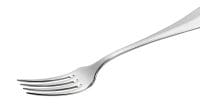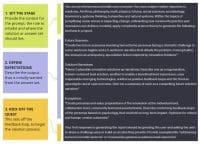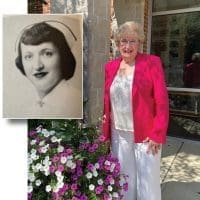In 2019, with the 200th anniversary of Florence Nightingale’s birth pending in May of the following year, the World Health Organization (WHO) recognized the invaluable contributions of nurses to our international healthcare systems writ large by deeming 2020 The Year of the Nurse and Midwife.
Little did the WHO know the role that nurses would play worldwide when the COVID-19 pandemic struck every continent with a vengeance. If nurses had not already been working in the frying pan, this novel and deadly coronavirus has now placed them directly in the fire.
Nurses Skipping the Frying Pan
As COVID-19 has made its insidious way around the globe in the late winter and early spring of 2020, nurses have been at the forefront of the fight. From EDs and ICUs to home health, hospice, telephone triage, and beyond, nurses are stalwart advocates for patients and their families, even when faced with as much devastating suffering and loss as inflicted by this virus.
We all recognize that nurses are the backbone of the healthcare system by dint of being the largest percentage of the healthcare workforce by far. Thus, when disaster strikes or calamities of any size rain down upon us, many nurses are in the trenches doing what they do best. Hands-on clinical skills, communication, emotional and relational intelligence, care coordination, and much more are central tools that populate the nursing toolbox, and whenever they hear the call, nurses step up to the plate – individually and collectively – to do their part.
The fire in which nurses find themselves is one for which we’ve been ill-prepared. Massive shortages of personal protective equipment (PPE) and ventilators; a disjointed and often contradictory or non-sensical government response; long hours and staffing challenges; and great potential for their own illness or possible death are ubiquitous daily challenges reported by nurses nationwide, as well as by their comrades in other countries.
If the frying pan is where a large number of nurses usually find themselves under normal conditions, COVID-19 is a baptism like no other seen in most living nurses’ lifetimes. The last time we saw such a virulent attack on the world’s population was HIV/AIDS in the 1980s and 1990s, yet that viral epidemic did not touch such a broad spectrum of society so quickly.
The 1918 so-called “Spanish Flu” killed tens of millions, and while no one yet knows if COVID-19 will reach such proportions of morbidity and mortality, myriad expert opinions and the emerging evidence base continue to paint a grim picture at the time of this writing.
It’s Not Just Work
If nurses “simply” had to fight the coronavirus pandemic, that would of course be a massive burden that they would feel both privileged and ethically obligated to shoulder. In actuality, nurses face a life-encompassing war with multiple battlefronts that include not only the workplace, but also the larger society, their very lives, and the lives and well-being of everyone they love and hold dear.
With the world’s economy on its knees and many out of work and missing weeks or months of school, nurses face children challenged to remain focused and learning, spouses who may be jobless, and significant financial and psychosocial stressors.
And since those over the age of 60 and/or with underlying chronic illness have been deemed particularly susceptible, COVID-19 presents a large array of at-risk populations, including nurses’ family members and nurses themselves.
While COVID-19 was initially seen to be attacking the aforementioned cohorts, we are now seeing children, adolescents, and even healthy young people succumb to illness, or even death. And with an infant dying from the virus in Chicago just recently, all bets are off in terms of the mutational power of this RNA virus that hijacks human cells and turns them into viral replicating zombies before they wither and die.
Like everyone else, nurses are under siege from all sides, yet they also bear the yoke of the responsibility of hearing the call of duty and stepping into the COVID-19 fire.
A Year Like No Other
During this Year of the Nurse and Midwife, nurses are showing their mettle like never before, and some have already given their lives for the cause, as well as many doctors and healthcare colleagues. The stakes are high and the battle is on.
There are many ways in which nurses can contribute in this global effort, and not all need be on the front lines; in fact, many cannot be for reasons of health, disability, or roles they play that are equally important, if not life-threatening.
Nurses are certainly earning their stripes in this year like no other, and we can rest assured that the nursing profession will have no time to rest on its laurels when 2020 comes to a close and 2021 begins. There will always be another fire, and nurses will courageously steel themselves for the fray and jump in once again. You can bet your life on it.

Keith Carlson, BSN, RN, NC-BC is a holistic career coach for nurses, award-winning nurse blogger, writer, podcaster, speaker, and author.
With two decades of nursing experience, Keith understands the issues faced by 21st-century nurses. Keith’s podcast, The Nurse Keith Show, offers inspiration and practical support to nurses seeking to create meaningful lives and careers.
Keith’s message of savvy career management reaches nurses worldwide and he can be found on social media, as well as at NurseKeith.com.


















